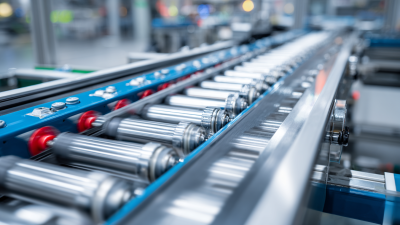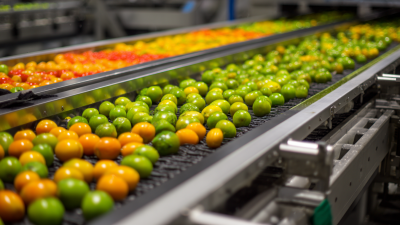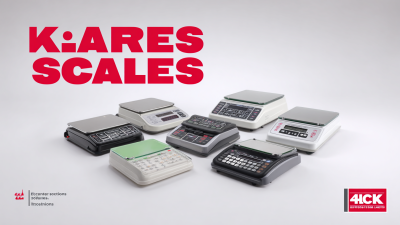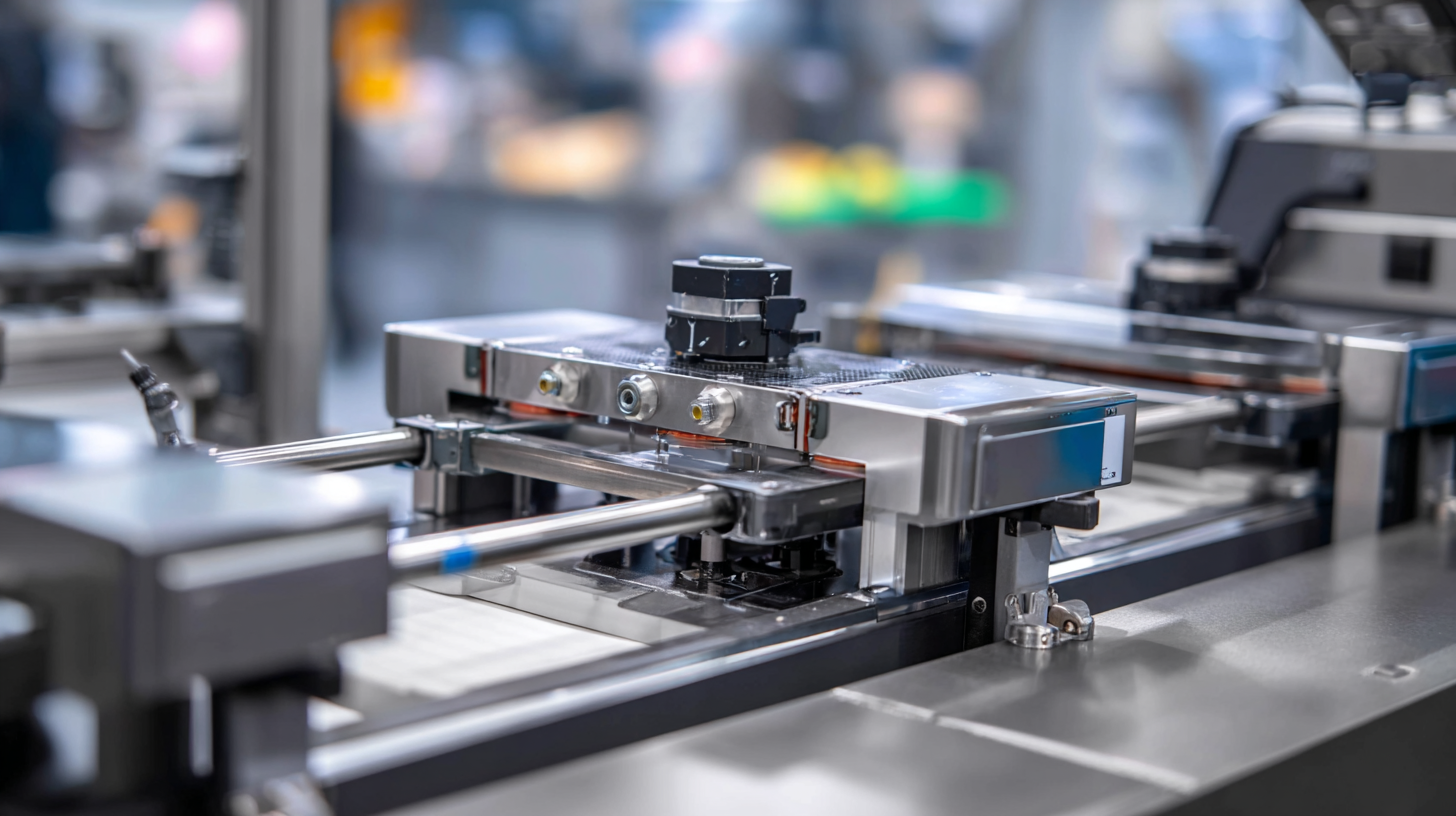 In an era where food safety and quality control are paramount, the innovative integration of technology into the food production line has never been more crucial. Among the forefront of these advancements are the 2025 Top 5 Metal Detector Checkweighers that are set to revolutionize quality control in the food industry. These sophisticated devices not only ensure that products are free from harmful contaminants but also verify that they meet weight specifications, thereby enhancing overall product integrity.
In an era where food safety and quality control are paramount, the innovative integration of technology into the food production line has never been more crucial. Among the forefront of these advancements are the 2025 Top 5 Metal Detector Checkweighers that are set to revolutionize quality control in the food industry. These sophisticated devices not only ensure that products are free from harmful contaminants but also verify that they meet weight specifications, thereby enhancing overall product integrity.
According to John Smith, a leading expert in the Metal Detector Checkweigher industry, "The future of food safety lies in our ability to combine precision with innovation. The latest technology in metal detector checkweighers has the potential to significantly reduce risks, ensuring that consumers receive only the highest quality products." This statement underscores the importance of investing in advanced checkweighing systems, as manufacturers strive to maintain strict regulatory compliance and uphold consumer trust. With the ongoing evolution of these tools, the food industry is poised to see transformative improvements in operational efficiency and safety standards.
The food industry faces growing pressures to ensure product safety and quality, which is where metal detector checkweighers have become essential. Research from the Food and Drug Administration (FDA) indicates that food contamination accounts for 48 million illnesses annually in the United States alone, often due to foreign materials like metal fragments. Metal detector checkweighers not only identify metallic contaminants but also ensure that products meet weight specifications, playing a dual role in quality control and compliance with safety regulations.
Incorporating advanced metal detection technology, these systems operate at high speeds and precision, detecting even the smallest metal particles. According to a report by MarketsandMarkets, the global market for metal detectors, including checkweighers, is expected to grow significantly, reaching an estimated valuation of $3.2 billion by 2025. This growth reflects the industry's commitment to enhancing safety protocols and minimizing risks associated with food contamination, reinforcing the importance of integrating these innovative systems into production lines. By preventing metal contamination, manufacturers can not only protect consumers but also safeguard their brands against costly recalls and legal issues.
In the ever-evolving food industry, quality control remains a critical focus, especially with the increasing adoption of advanced technologies. Key industry statistics suggest that top metal detector checkweighers are revolutionizing quality assurance processes. These devices not only ensure safety by detecting contaminants, but they also enhance productivity by streamlining operations. As the global demand for food safety and quality increases, these technologies play an indispensable role.
**Tips:** One of the most significant benefits of integrating advanced checkweighers is the reduction of false rejects, which can save companies substantial costs. Additionally, incorporating AI-driven data analytics can provide insights into production efficiency, further optimizing quality control processes. Regular maintenance and calibration of these machines are essential to sustain their performance and reliability.
Moreover, regulatory trends emphasize the need for compliance with rigorous quality standards. As companies worldwide navigate these changes, embracing innovative solutions will be pivotal. Investing in state-of-the-art checkweighers not only meets regulatory demands but also builds consumer trust in food safety, fostering brand loyalty in a competitive marketplace.
The food industry is witnessing a significant transformation in quality control with the advent of advanced metal detector checkweighers. Recent innovations in design aim at enhancing accuracy and efficiency, essential in a market that increasingly demands stricter safety standards. Leading technology now integrates intelligent inspection systems that not only detect metal contaminants but also perform real-time weight checks, ensuring compliance with regulatory requirements and boosting overall production quality.
At recent industry exhibitions, cutting-edge solutions have been showcased that emphasize smart inspection technologies. These systems are designed to streamline operations by providing detailed insights into product integrity, thus enabling manufacturers to quickly identify and address potential issues. The adoption of inline detection systems further enhances food safety by ensuring that products are free from harmful contaminants, such as metal fragments. As the food processing sector continues to innovate, the emphasis on high-performing checkweighers will be critical to maintaining food quality and consumer safety.
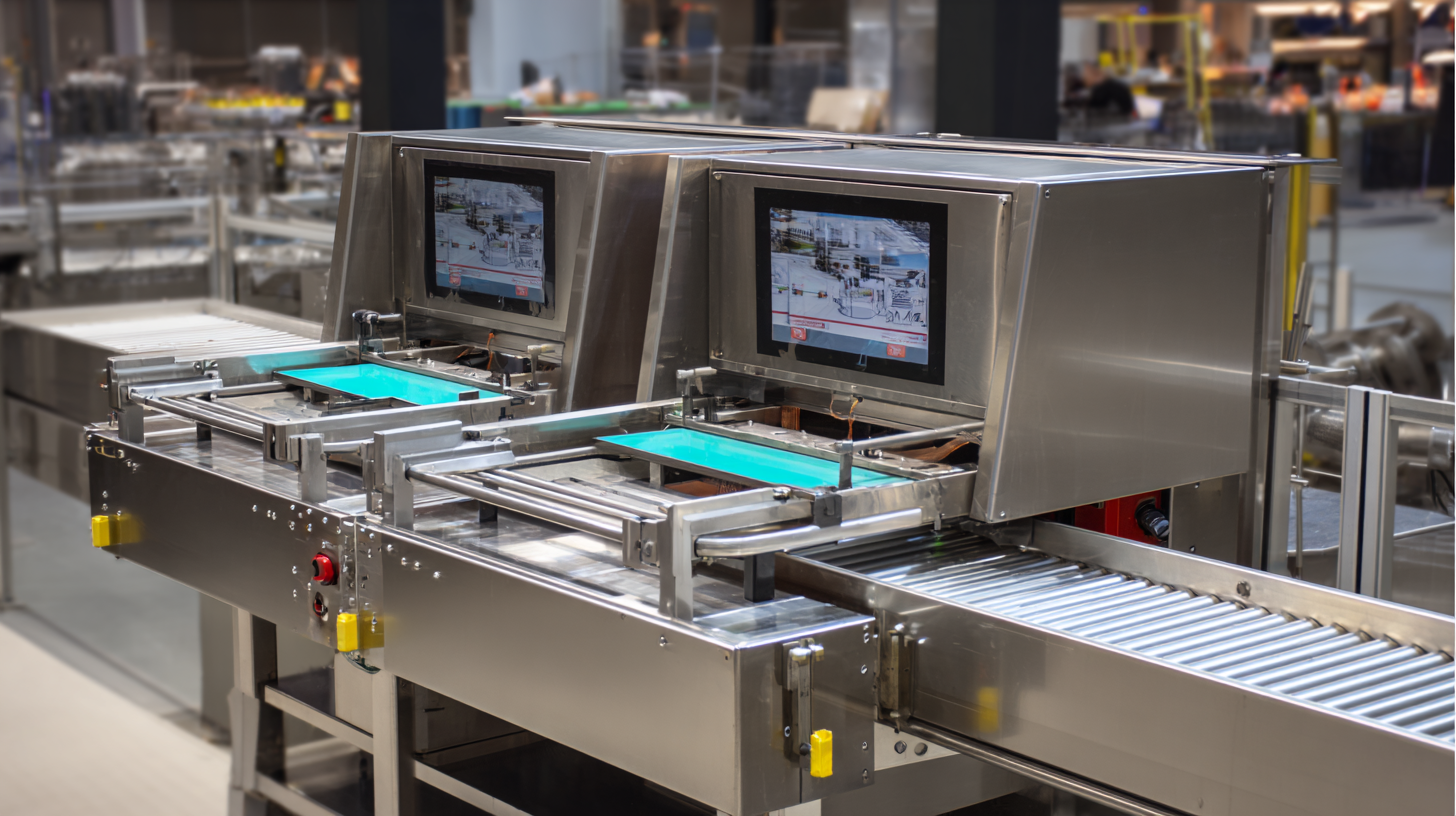
The integration of cutting-edge metal detector checkweighers is transforming quality control in the food industry, as evidenced by multiple case studies from leading manufacturers. For instance, a large snack food producer implemented a state-of-the-art checkweighing system that not only detected metal contaminants but also accurately assessed the weight of each pack. This dual-function approach significantly reduced product recalls and enhanced consumer trust by maintaining stringent safety and quality standards.
Another prominent case involved a dairy processor that faced challenges with inconsistent product weight and contamination risks. By employing advanced checkweighing technology, the company improved its operational efficiency while minimizing waste. The new system provided real-time data analytics, allowing for immediate adjustments in production lines. As a result, the dairy manufacturer reported a remarkable increase in compliance with industry regulations, leading to a stronger market position and improved profitability. These examples showcase how innovative technology is reshaping quality assurance protocols, ensuring safer food products for consumers.
| Dimension | Technology A | Technology B | Technology C | Technology D | Technology E |
|---|---|---|---|---|---|
| Detection Sensitivity | 0.5 mm | 0.3 mm | 0.4 mm | 0.6 mm | 0.5 mm |
| Throughput Capacity | 600 units/hour | 500 units/hour | 700 units/hour | 650 units/hour | 550 units/hour |
| User Interface | Touchscreen | LED display | Touchscreen | Button interface | Touchscreen |
| Compliance Standards | HACCP, FDA | ISO, FDA | HACCP | FDA | ISO, HACCP |
| Market Adoption Rate | 30% | 25% | 20% | 15% | 10% |
The integration of artificial intelligence (AI) in
metal detection and checkweighing systems is set to transform quality control within
the food industry by 2025. According to
a report by MarketsandMarkets, the global market for metal detectors is projected to
reach $3.75 billion by 2025, with the AI segment
experiencing the fastest growth. AI technologies enhance detection capabilities by
enabling systems to learn from past data, allowing for more accurate identification
of contaminants such as metal fragments, which is crucial for maintaining food safety
standards.
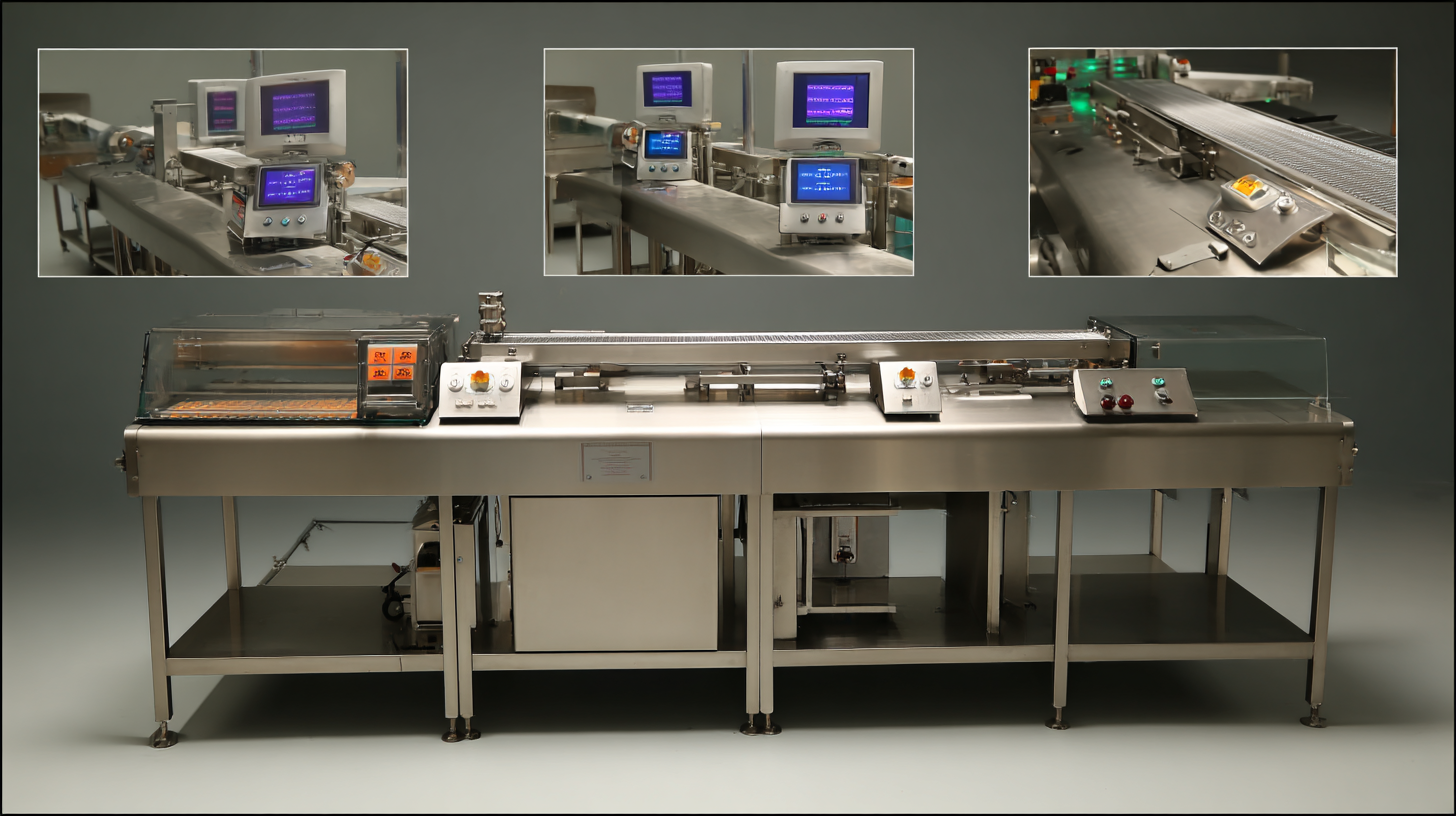 Moreover, the adoption of AI in checkweighers
streamlines the quality assurance process, reducing the risk of human error associated
with manual inspections. Research from the Food Safety and Inspection Service indicates
that automated systems can improve detection efficiency by up to 30%,
thereby increasing throughput and minimizing waste. As consumers demand higher safety and
quality in food products, integrating AI into metal detection and weighing processes not
only supports compliance with industry regulations but also enhances the overall consumer
experience by ensuring that only the highest quality products reach the market.
Moreover, the adoption of AI in checkweighers
streamlines the quality assurance process, reducing the risk of human error associated
with manual inspections. Research from the Food Safety and Inspection Service indicates
that automated systems can improve detection efficiency by up to 30%,
thereby increasing throughput and minimizing waste. As consumers demand higher safety and
quality in food products, integrating AI into metal detection and weighing processes not
only supports compliance with industry regulations but also enhances the overall consumer
experience by ensuring that only the highest quality products reach the market.
